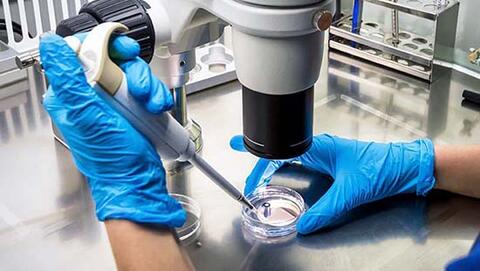
Topics
The topics covered by ED 406 fall within the disciplinary field of molecular chemistry, in all its diversity.
The main methods used in organic synthesis (coupling, cyclization, rearrangement, radical and domino reactions, etc.) are widely explored, both in their stoichiometric and catalytic aspects (orgnometallic, homogeneous or supported catalysis, organocatalysis), with particular attention paid to the development of eco-compatible and environmentally-friendly processes. The overall aim of these method developments is the total synthesis of natural and/or biologically active products.
The synthesis and manipulation of biomolecules (oligosaccharides and sugar mimetics, amino acids, peptides, oligonucleotides, etc.) and the study of the structure and reactivity of enzymes (prolyl-ACP oxidase, polyketide synthases, coenzyme Q10, etc.) constitute another major thrust of the research carried out by certain ED teams. They include the study of vectorization and intracellular distribution, biomolecule/cell or membrane model interaction studies, the study of RNA modification and the chemistry of natural substances and the (bio)synthesis of metabolites (metabolites of symbiotic fungi, neurotoxins, Q10/ubiquinone), which can make extensive use of the synthesis methods mentioned above. Medicinal chemistry and bioorganometallic chemistry complete the picture, as do the development of artificial metalloenzymes and the bioinspired design of complexes for artificial photosynthesis and CO2 recovery.
Molecular, organometallic and coordination inorganic chemistry are also widely represented in the DE: organometallic complexes active in biosourced polymerization catalysis or as building blocks for chiral or luminescent assemblies, functional polymetallic complexes, for their electronic and/or magnetic properties. This interface with molecular materials is also illustrated by the design of photovoltaic solar cells.
Synthesis is at the heart of the ED. Supramolecular chemistry is also an emerging cross-disciplinary area, involving a wide variety of organic structures such as cyclodextrins and poly(organo)metallic structures.
These skills are reinforced by the analytical approach of certain research teams, interested in the electrochemical determination of the mechanism of catalyzed organometallic reactions, by the development of separative sciences in general and capillary electrophoresis for the characterization of new structures, the improvement of synthesis processes, the study and understanding of interaction mechanisms, particularly in biological environments, and proteomics, as well as instrumental development in mass spectrometry for the structural study of macro- and bio-molecules or the understanding of reactivity in the gas phase. Electrochemical catalysis, the design of electroanalytical biosensors and multimodal probes, in conjunction with methodological developments in MRS and MRI for medical imaging, also contribute to the valorization of the molecular systems we master.
